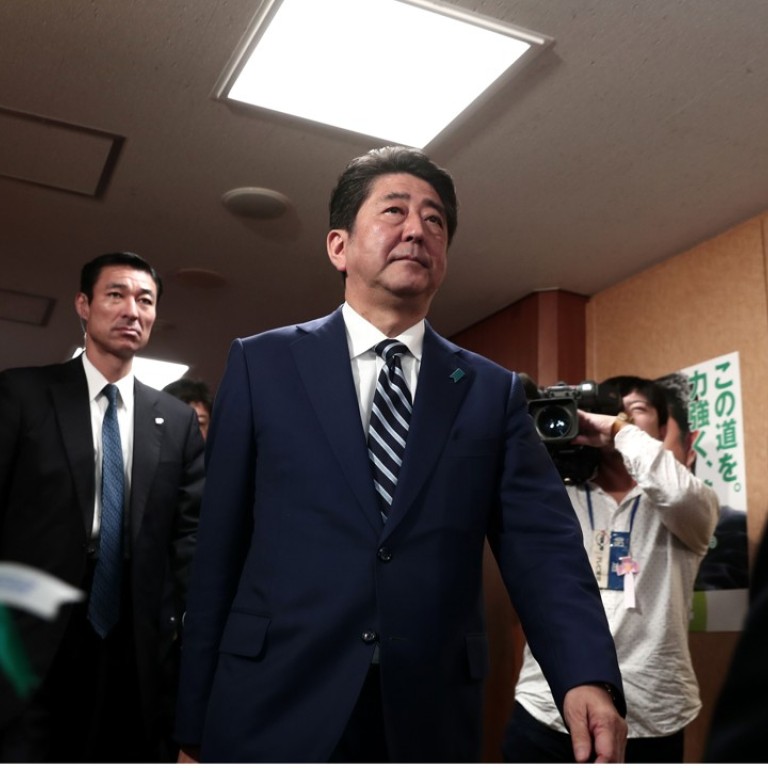
Update | Abe promises to deal with North Korea ‘firmly’ after landslide win in Japan’s election
Opposition Party of Hope founder Yuriko Koike described the result as ‘very severe’ and said she will accept responsibility, while her right-hand man Masaru Wakasa appears to have lost his seat
Japanese Prime Minister Shinzo Abe swept to a resounding victory in a snap election Sunday and immediately vowed to “deal firmly” with threats from North Korea that dominated the campaign.
Abe’s conservative coalition won 312 seats in the 465-seat parliament, retaining a two-thirds super-majority that puts the nationalist premier on course to become Japan’s longest-serving leader.
The resounding election win is likely to stiffen Abe’s resolve to tackle North Korea’s nuclear threat, as the key US regional ally seeks to exert maximum pressure on Pyongyang after it fired two missiles over Japan in the space of a month.
“As I promised in the election, my imminent task is to firmly deal with North Korea,” Abe said. “For that, strong diplomacy is required.”
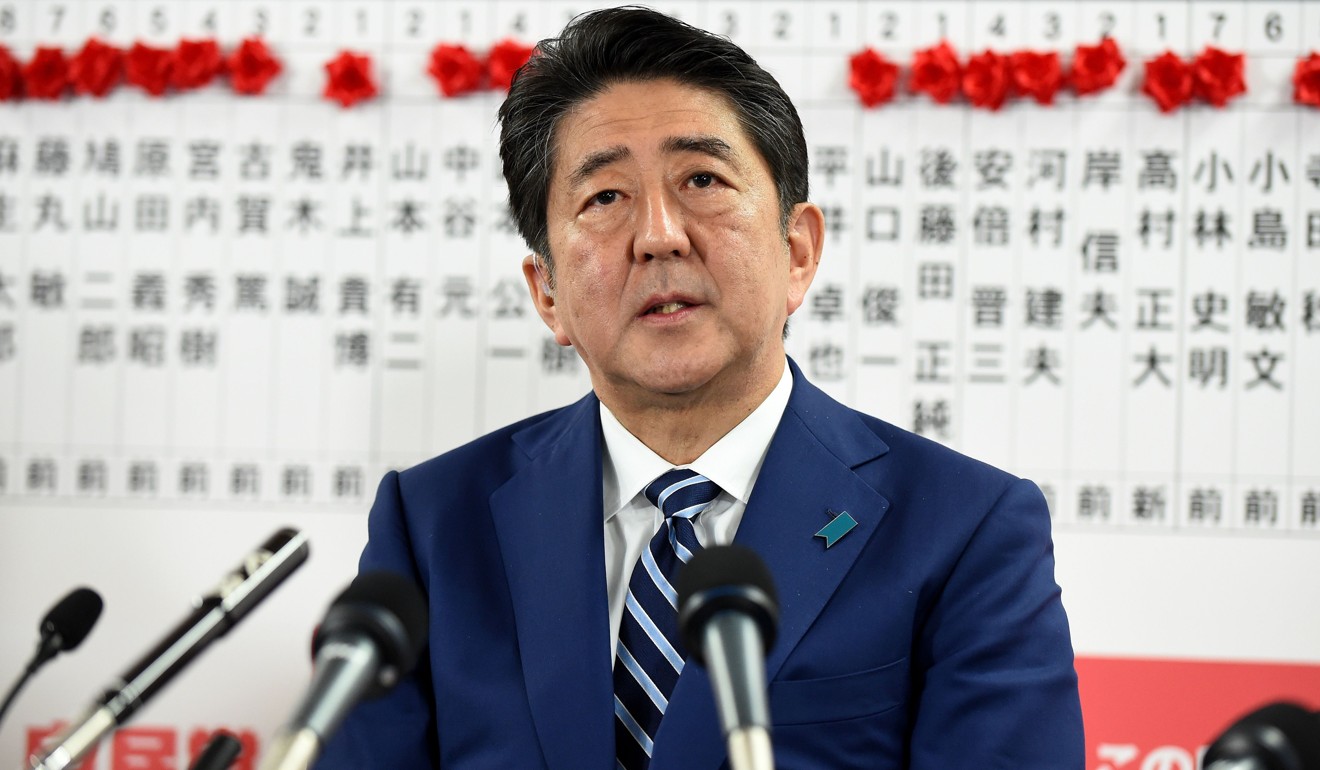
Abe was heading for a “landslide win”, the top-selling Yomiuri daily said on its website, as the premier’s gamble to hold a snap election appeared to be paying off. That was later confirmed.
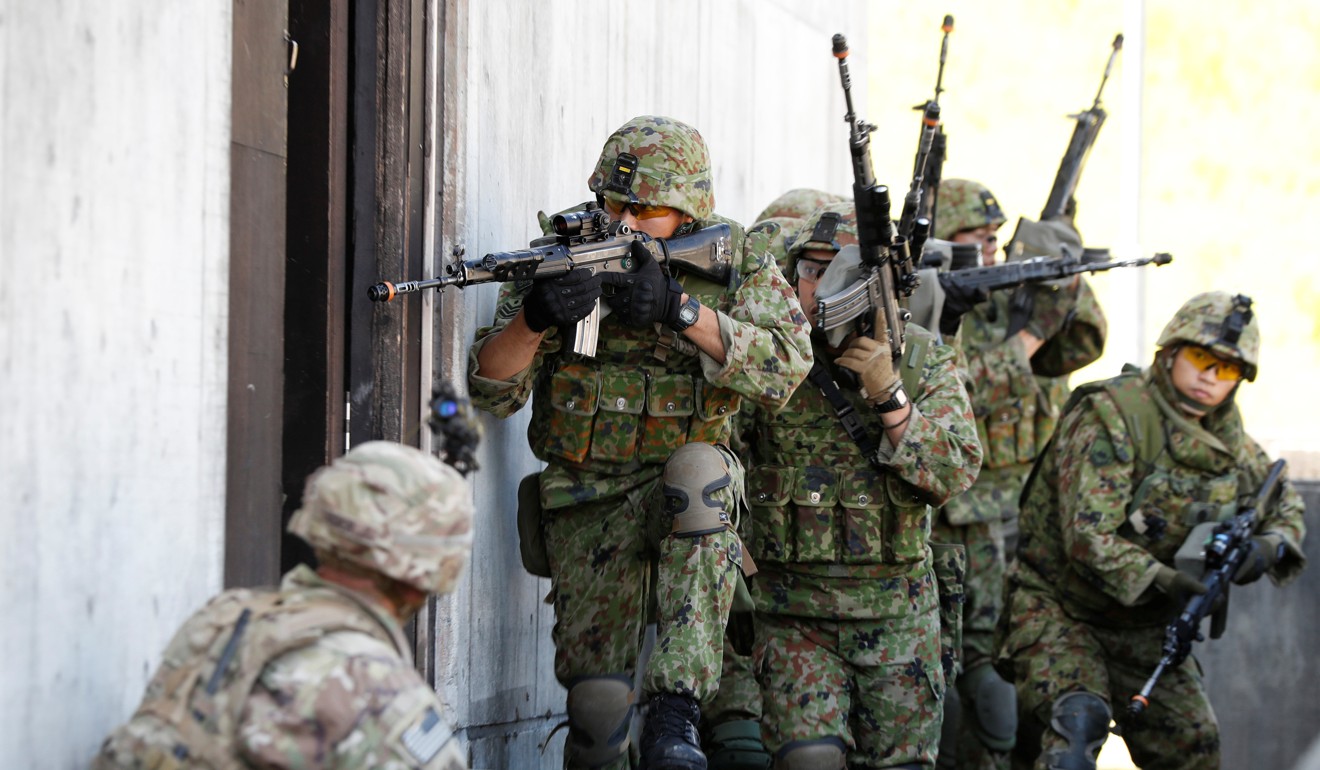
A “supermajority” allows Abe to propose changes to pacifist Japan’s US-imposed constitution that forces it to renounce war and effectively limits its military to a self-defence role.
Abe said he would “deepen” debate on the divisive issue in parliament but stressed: “I don’t plan to propose [changes] via the ruling bloc alone. We’ll make efforts to gain support from as many people as possible.”
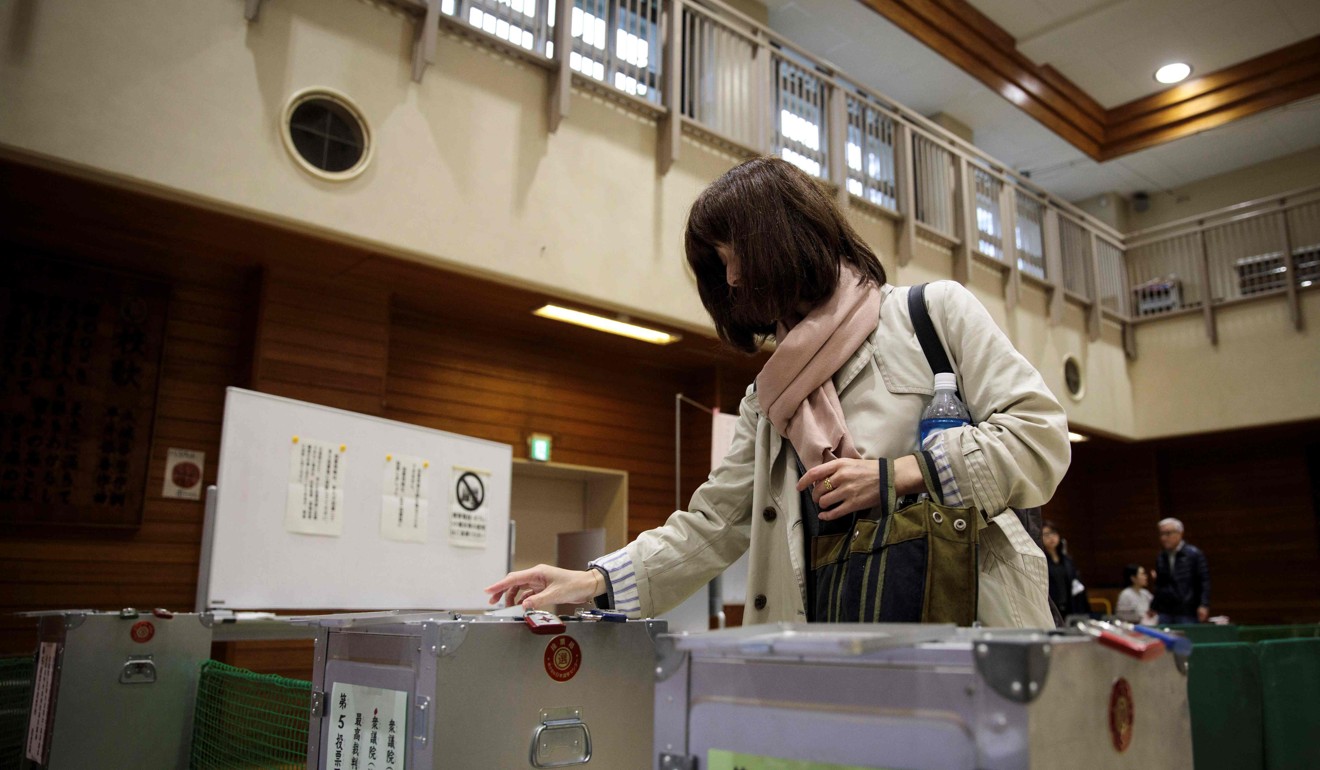
Millions of Japanese braved torrential rain and driving winds to vote as a typhoon bears down on the country, with many heeding warnings to cast their ballots early.
“I support Abe’s stance not to give in to North Korea’s pressure,” said Yoshihisa Iemori as he cast his ballot in a rainswept Tokyo.
Abe’s Liberal Democratic Party (LDP) benefited from a weak and splintered opposition, with the two main parties facing him created only a matter of weeks ago.
Support for the Party of Hope founded by popular Tokyo Governor Yuriko Koike fizzled after an initial blaze of publicity and it was on track to win around 50 seats, the TBS projection suggested.
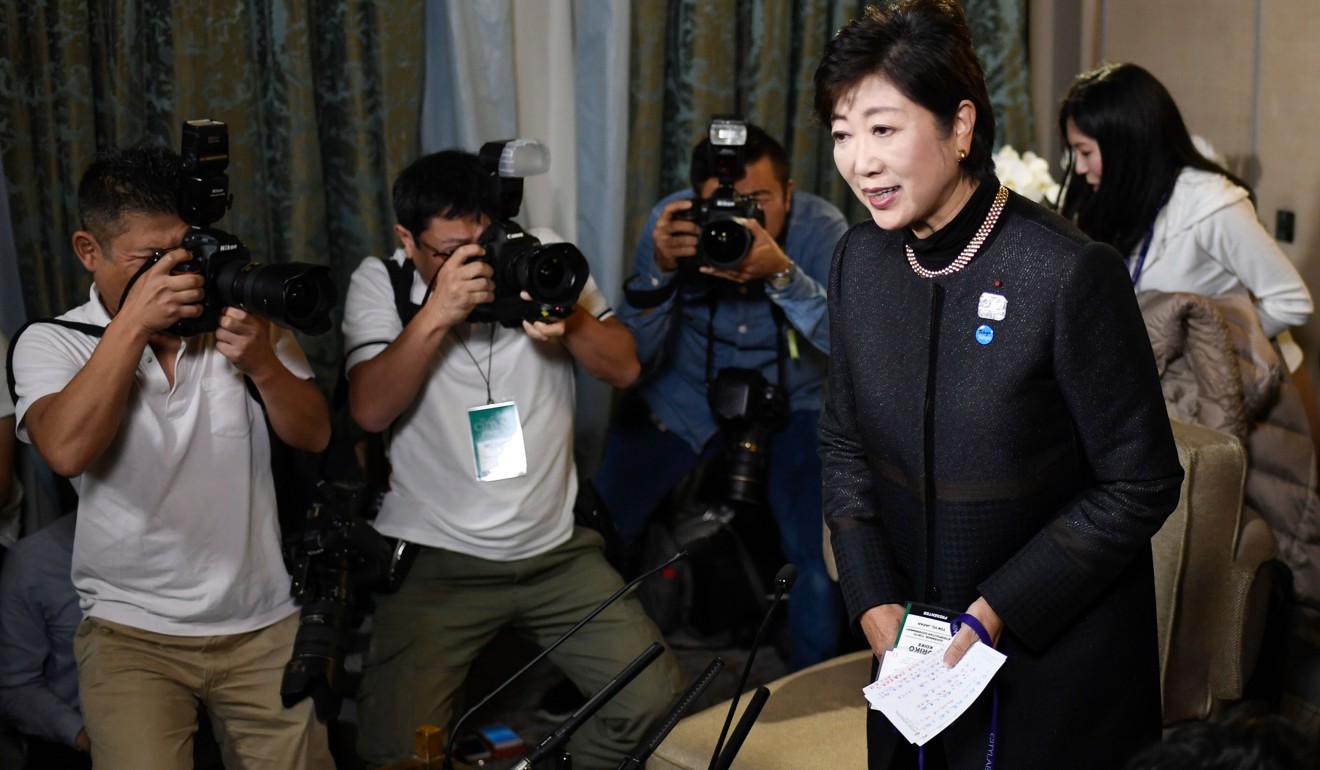
Speaking from Paris where she was attending an event in her capacity as leader of the world’s biggest city, a sullen-faced Koike told public broadcaster NHK she feared a “very severe result”.
“As the person who launched the party, I will take responsibility.”
The new centre-left Constitutional Democratic Party fared slightly better than expected but still trailed far behind Abe with 58 seats. It now become Japan’s official opposition.
“The LDP’s victory is simply because the opposition couldn’t form a united front,” said political scientist Mikitaka Masuyama from the National Graduate Institute for Policy Studies.
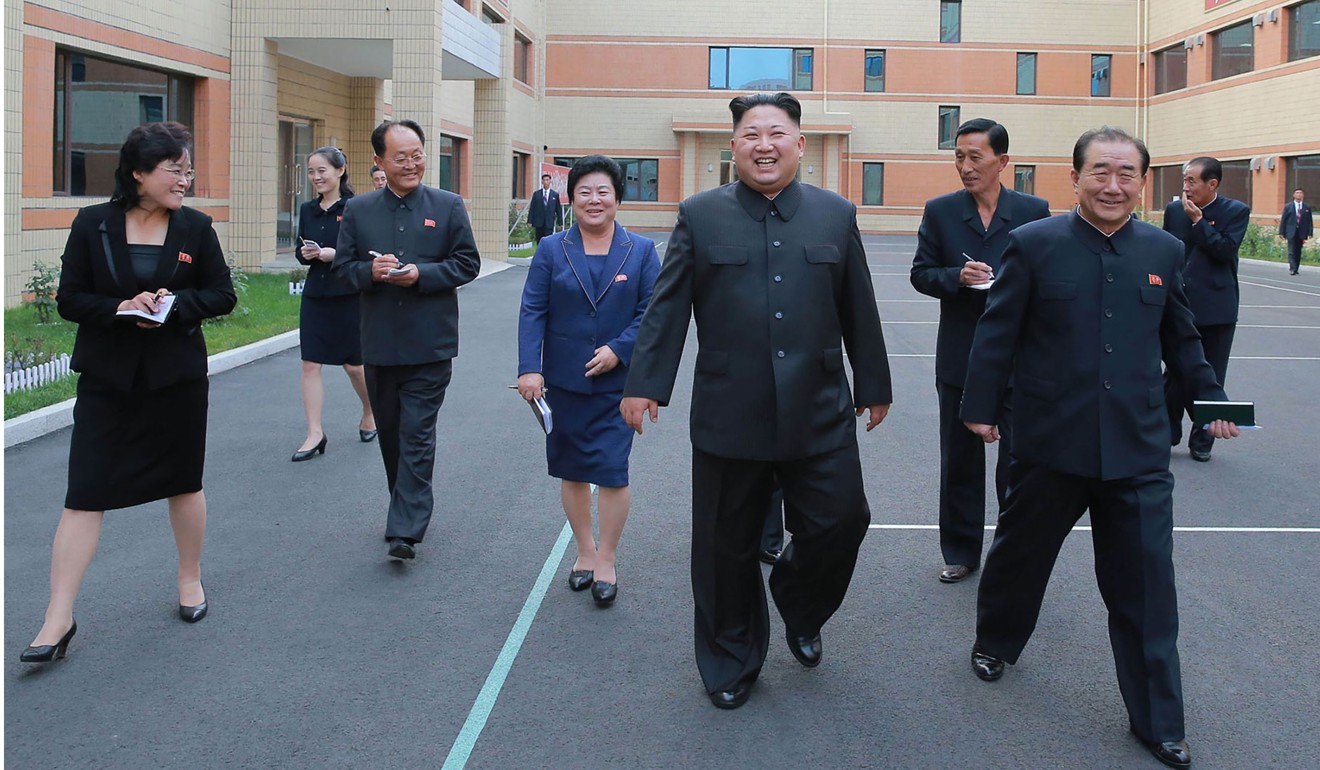
The short 12-day campaign was dominated by the economy and the global crisis over North Korea, which has threatened to “sink” Japan into the sea and engaged in a war of words with US President Donald Trump.
Hawkish Abe stuck to a hardline stance throughout, stressing that Japan “would not waver” in the face of an increasingly belligerent government in Pyongyang.
But many voters said reviving the once-mighty Japanese economy was the top priority, with Abe’s trademark “Abenomics” growth policy failing to trickle down to the general public.
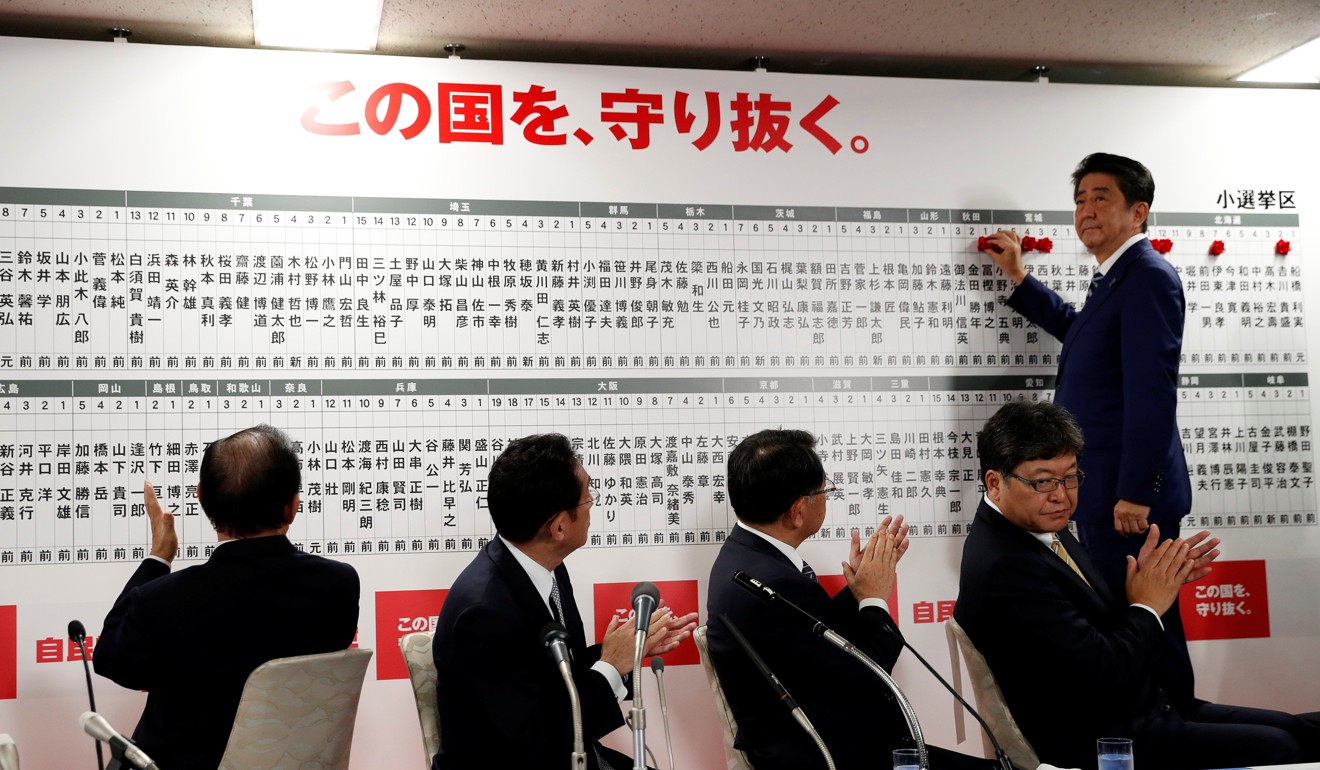
“Neither pensions nor wages are getting better … I don’t feel the economy is recovering at all,” said 67-year-old pensioner Hideki Kawasaki.
Koike briefly promised to shake up Japan’s sleepy political scene with her new party but she declined to run herself for a seat, sparking confusion over who would be prime minister if she won.
In the end the 65-year-old former television presenter was not even in Japan on election day.

.png?itok=arIb17P0)